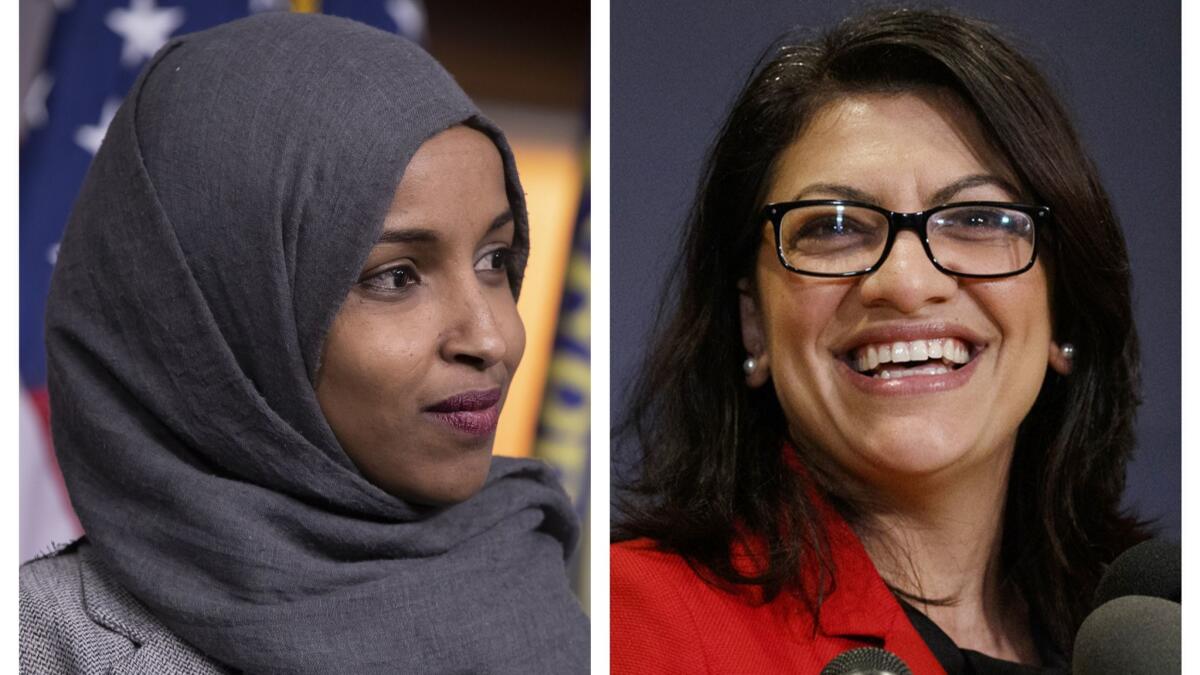Editorial: Cheers to the unprecedented number of women taking political office today

- Share via
When the 116th Congress convenes Thursday, it will include more women than ever before: 25 in the Senate and 102 in the House of Representatives.
The freshwomen in the House will also be more ethnically diverse than in the past, including two Native American and two Muslim women — up from zero. And for the first time, six states will be represented in the Senate by two women: California, Washington, Nevada, New Hampshire, Minnesota and Arizona.
If 1992 was dubbed the Year of the Woman in American politics — and it was, for those who can’t remember that far back — then perhaps 2018 could be called the Year of the Women. Because an unprecedented number of women ran for — and won — political offices across the nation.
There are likely many reasons for the surge. Some women had been preparing to run for a while; others may have been motivated by the election of Donald Trump after he admitted in a leaked recording to groping women as he wished, political scientists say. The women’s political action committee Emily’s List reported that it received more than 34,000 inquiries from women interested in running for office in the year after Trump won.
Enter the Fray: First takes on the news of the minute from L.A. Times Opinion »
The number of women serving in state legislatures increased too. Collectively, 28.5% of the seats in statehouses are now held by women, up from 25.4%, according to data compiled by the Center for American Women and Politics. Nevadans elected so many women on Nov. 6 that their Legislature will have the nation’s first-ever female majority.
We’re nowhere close to parity. Women compose slightly more than half of the U.S. population but hold only a quarter of the seats in the U.S. Senate and slightly less than that in the House. Still, the increase is worth celebrating.
Why should anyone care? Well, for one thing, it stands to reason that a representative democracy will be most effective when it actually represents all its people, not just a lucky elite. Furthermore, studies show that women govern differently from men — not necessarily better, just differently. They are often more collaborative than their male counterparts and more likely to seek to build consensus and are more likely to focus on “women’s” issues, such as healthcare, child care and education. A move in those directions would be welcome.
It’s too bad that the record was lopsided, with gains by women made primarily on the Democratic side. In fact, the number of Republican women in the House will drop by 10 in the new Congress.
Still, early signs indicate that women will continue to seek higher office in the years ahead — and perhaps even finally break through the ultimate political glass ceiling into the White House.
Follow the Opinion section on Twitter @latimesopinion and Facebook
More to Read
A cure for the common opinion
Get thought-provoking perspectives with our weekly newsletter.
You may occasionally receive promotional content from the Los Angeles Times.






